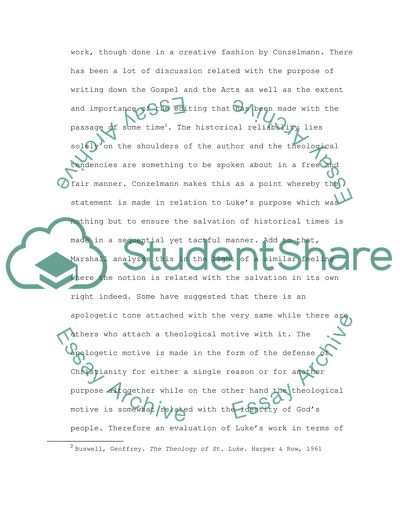Cite this document
(The Theology of St. Luke Essay Example | Topics and Well Written Essays - 2000 words, n.d.)
The Theology of St. Luke Essay Example | Topics and Well Written Essays - 2000 words. Retrieved from https://studentshare.org/religion-and-theology/1538529-the-theology-of-st-luke
The Theology of St. Luke Essay Example | Topics and Well Written Essays - 2000 words. Retrieved from https://studentshare.org/religion-and-theology/1538529-the-theology-of-st-luke
(The Theology of St. Luke Essay Example | Topics and Well Written Essays - 2000 Words)
The Theology of St. Luke Essay Example | Topics and Well Written Essays - 2000 Words. https://studentshare.org/religion-and-theology/1538529-the-theology-of-st-luke.
The Theology of St. Luke Essay Example | Topics and Well Written Essays - 2000 Words. https://studentshare.org/religion-and-theology/1538529-the-theology-of-st-luke.
“The Theology of St. Luke Essay Example | Topics and Well Written Essays - 2000 Words”. https://studentshare.org/religion-and-theology/1538529-the-theology-of-st-luke.


